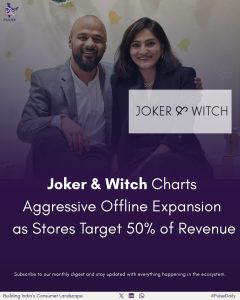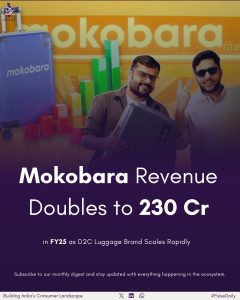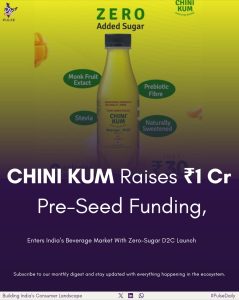Eggoz is writing one of the most engaging D2C brand building stories in the D2C food and beverage brands category, in a messy and largely unorganized environment where over 1 billion eggs are discarded yearly. Founded in 2017 by three IIT graduates Abhishek Negi, Aditya Singh, and Uttam Kumar, Eggoz has grown from a modest 12,000-bird farm to a directtoconsumer India titan selling over 2 crore eggs per month.

Amid growing demand, subpar quality control, and supply chain opacity, Eggoz’s founding team saw an opportunity to reimagine how India consumes eggs—fresh, pure, and traceable. Eggoz has become one of the fastest expanding D2C companies in a nation where 95% of the egg sector is unorganized, frontloading trust, openness, and technology to the egg business.
Among India’s most successful D2C companies, Eggoz lately secured $20 million in Series C funding to improve logistics, automate processes, and grow into new cities. This sets the brand to compete not just with established players but also with rapid commerce D2C companies like Zepto’s Relish and BigBasket’s Fresho, both of which are increasing their privatelabel egg items.
From D2C Playbook via Poultry Farms
At first, Eggoz began with captive farms in Madhya Pradesh and Bihar so that they could learn about chicken production and quality control. By 2020, it was controlling more than one lakh birds. Ten percent herbal feed—no chemicals, no antibiotics—was used for every egg, therefore creating a premium D2C brand India founded on quality assurance.
When the pandemic struck, Eggoz changed to an asset-light D2C company model India, creating a scalable backend backed by a proprietary “Egg Tech Stack” that allowed supply chain tracking, quality monitoring, and operational efficiency—an example of audacious D2C supply chain innovation.
Along this move, Eggoz became one of the few D2C brands India in the egg category with constant consumer recall and confidence, not only introduced branded eggs to fast commerce channels including Blinkit, Zepto, and Swiggy Instamart.
The Important Numbers
Rising from ₹54 Cr in FY24 to ₹130 Cr in FY25, Eggoz registered a 137% revenue growth. Additionally, it reached EBITDA level breakeven in Q4 FY25 and decreased net losses by 28%, a powerful indicator in the D2C revenue growth story. Building on momentum from its financing and operational victories, Eggoz intends to duplicate this model around India with more cities on its schedule.
This makes Eggoz among the most sustainable and tech-backed D2C companies in the agritechfood sector as well as among the top funded.
Growing rivalry, well-defined strategy
With platforms like Zepto and BigBasket joining the scene with branded eggs, Eggoz is now concentrating on D2C product launches in the form of egg-based frozen meals and snacks—a diversification move to broaden its consumer base beyond fresh eggs. Founder Abhishek Negi contends that for Eggoz’s following phase, it is imperative to grow beyond fast commerce channels into FMCG-style categories.
Negi said in an interview following the Series C round, “Our goal is to improve supply chains and brand recognition while moving into high-potential verticals,” a vision congruent with present D2C expansion strategy and D2C market trends 2025.
Case Study in D2C Ecosystem India
From addressing long-standing supply chain problems to designing technology-led consumerfirst experiences, Eggoz’s trip powerfully reflects the way the D2C ecosystem in India is changing. Eggoz has not only shown otherwise but also cleared the path for sustainable D2C companies in food tech and agriculture in a space once seen too commercialized to brand.
Eggoz’s story provides a roadmap for others wanting to break into challenging, fragmented markets by data, discipline, and unique goods as the Indian D2C sector develops.









